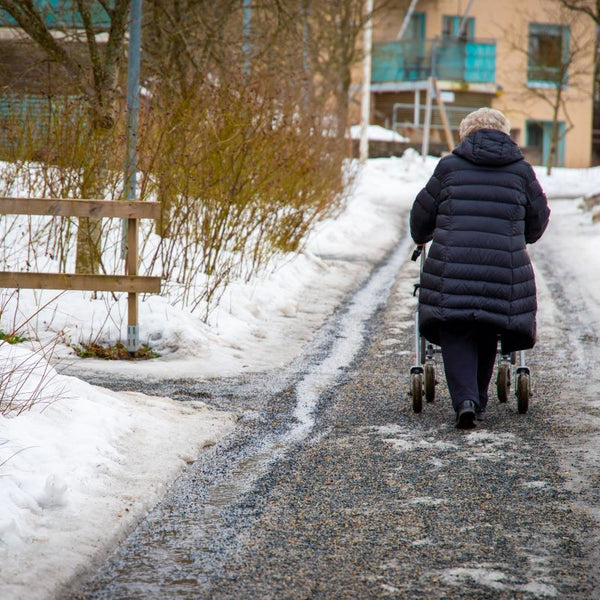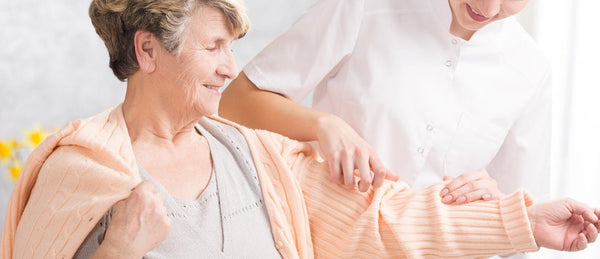Moving into a nursing home is a big decision for all involved. Moving out of your home into a care home can disrupt any routine that you may have and the change can be difficult to adapt to.
To most, moving into a nursing home is a voluntary choice and as a result, the quality of life increases, as well as the standard of care, compared to living in your home.
With that said, many of us would prefer to stay in our homes and only have to move into residential care if we need it. However, there are some circumstances where older people will need to stay in a care home for either a short period or permanently.
In this article, we will take a look at the circumstances in which a person can be "forced" into a care home in the UK.
Can a person be forced into a care home in the UK?
You cannot be legally forced into a care home in the UK if you are capable of making your own decisions.
Social services or the hospital may recommend that you should go into nursing care but you can't be forced to do anything against your wishes if you are mentally capable of making your own decisions.
With that said there are circumstances where a person may need to go into a care home. We will discuss those circumstances below.
Do you have to go into a care home if you can no longer make your own decisions?
Being able to make your own decisions and having the mental capacity to take in information and process it to make an informed decision is the main factor when it comes to being able to stay in your home or having to go into a care home.
If you don't have the mental capacity to make your own decisions because you have had an accident or you are suffering from a disease such as dementia then the hospital will work with your carers to decide the best place for you to get care, and this will often be a care home.
Under the Mental Health Act 1983, you could also be sectioned in a care home if it has been established that you could be a threat to yourself or others. If you are sectioned under the Mental Health Act, the local authority will need to pay for your care until your mental capacity improves or you are well enough to be discharged.
Do you have to go into a care home if you need around the clock care?
If you need around the clock care, as many dementia sufferers do towards the end of their illness, and you cannot live with a family member, or your in-home health care isn't going to meet your personal care needs, then you may have to go into a care home. This will ensure that your needs are met.
Dementia care is difficult for families and seeing a loved one not get the support and assistance they need is tough. It’s simply not always possible for loved ones to provide this care themselves. Some people may feel like they have failed if their elderly relative is too hard to look after. However, in many cases, a residential care home will improve the quality of care given to your loved one because of the dedicated staff and facilities in this kind of setting.
Dementia alarms and devices
Monitored dementia devices help keep vulnerable people safer, reducing the support they require from health and social services and from the emergency services.
Do you need care home respite care after a hospital discharge?
When an elderly person has stayed in hospital after treatment or a trip or a fall, the hospital may recommend that the elderly patient should continue their recovery in a nursing home if there is not sufficient support at home, such as having a personal alarm service in place.
The process of discharge from hospital to home isn’t always straightforward because recovering from something like a trip or a fall can take a long time and can be difficult for your family members to cope with. Care home staff may be well suited to help with your recovery, although emergency button alarms and fall alarms can provide additional support if you do stay at home.
The hospital will also discharge a patient into a care home when their needs have changed. When an elderly patient no longer needs continuing healthcare but needs social care, they can be transitioned into a community care facility or an elderly supported living setting until they have recovered enough to move back into their own home. This is sometimes known as respite care.
Fall alarms
If you have had a fall or are worried about the risk of falling, a personal alarm with fall detection can provide peace of mind. Should you have a fall, it will automatically alert the 24-hour alarm monitoring centre.
What is bed-blocking?
Bed-blocking is a situation when someone, often an elderly person, is staying in hospital but no longer has a medical need to stay there. However, they are unable to be discharged because there is not the right support available to them at home or an appropriate care plan in place.
It’s known as bed-blocking because a hospital bed taken up by someone who medically doesn’t need it is unfortunately stopping someone who may need it from getting hospital care. It can often take some time for social care teams to be able to put a plan and provision in place for elderly people who are being discharged from hospital.
Could elderly supported living be an option after hospital discharge?
Elderly supported living settings can sometimes be an option once someone is ready to be discharged from hospital and is unable to return home, but this will depend on the circumstances. It will depend on the level of support needed by the individual and whether an appropriate supported living place can be found.
It might be that an elderly supported living setting could be needed for a period of time while the older person recovers from an injury, surgery or illness, before they can transition back to their own home. This is similar to respite care, but the level of care in a supported living context is much lower, so would only be suitable for older people who are able to live mainly independently, just with a little extra support.
It could also be the case that someone who has been in hospital cannot return to their home due to a more permanent change in their health, mobility or circumstances. This doesn’t necessarily mean that they need to move into a care home, if they are able and want to live with as much independence as possible. This is where elderly supported living may be a good option as it provides an extra layer of support for those who don’t require a high level of care.
Funding issues for elderly care at home
When care is provided by your local authority, you can sometimes end up in residential care if there isn't enough budget to care for you at home.
You may also have to go into nursing care if there isn't adequate care at home. Telecare systems and personal alarms can be fitted in the home which can provide not only support for you, but give your loved ones peace of mind too.
Telecare and personal alarms can improve your quality of life at home and can be a contributing factor to cutting down hospital discharge times to your home.
Your options if you need to go into a care home
If it is decided that you or a loved one will become a care home resident then there are a few things that you need to know.
Firstly, if a local authority is paying for your care and it's on their recommendation that you go into care it doesn't mean they can force you into one particular home.
Although you will need to stick to a budget you can look around for care homes in your area that you like the look of. If the care homes are more expensive than the local authorities are willing to fund then you can top up the payments yourself or have a family member do it for you if there are funds available for this.
It’s important to take into account that care homes and nursing care, in general, can be expensive. Care home residents can either get help from local authorities or can use their home as collateral. It's important to know you don't have to sell your home, as you can set up a deferred payment which means the local authority can take what they are owed from the value of your home when it is sold in the future.
Conclusion
A hospital or health care provider may “force” you into a care home if they believe you don’t have the mental capacity to make your own informed decisions. You can also be made to go into a care home if you are considered a danger to yourself or the people around you, after an assessment. You may also need to go into a care home setting for a period of time after a hospital discharge if the necessary care provisions can’t be made at home. Finally, you can sometimes be made to go into a home if the local authority is providing you with care but doesn’t have the budget to pay for you to be cared for at home.
The idea of going into a nursing home is something that many older people find daunting, especially if it’s not their choice to do so at that time. While sometimes a care home setting is the best option for the situation, there are other instances where some other interventions might mean that a care home isn’t needed at this stage. For example, a personal alarm system, along with some home care provision, might enable you to stay in your own home for longer, while still getting the care you need and the independence you enjoy.
View the full range of personal alarms from TakingCare.
Home care support with a personal alarm
A personal alarm can give you the confidence and support you need to recuperate at home and be part of planning home elderly care after hospital. Compare personal alarms online.






